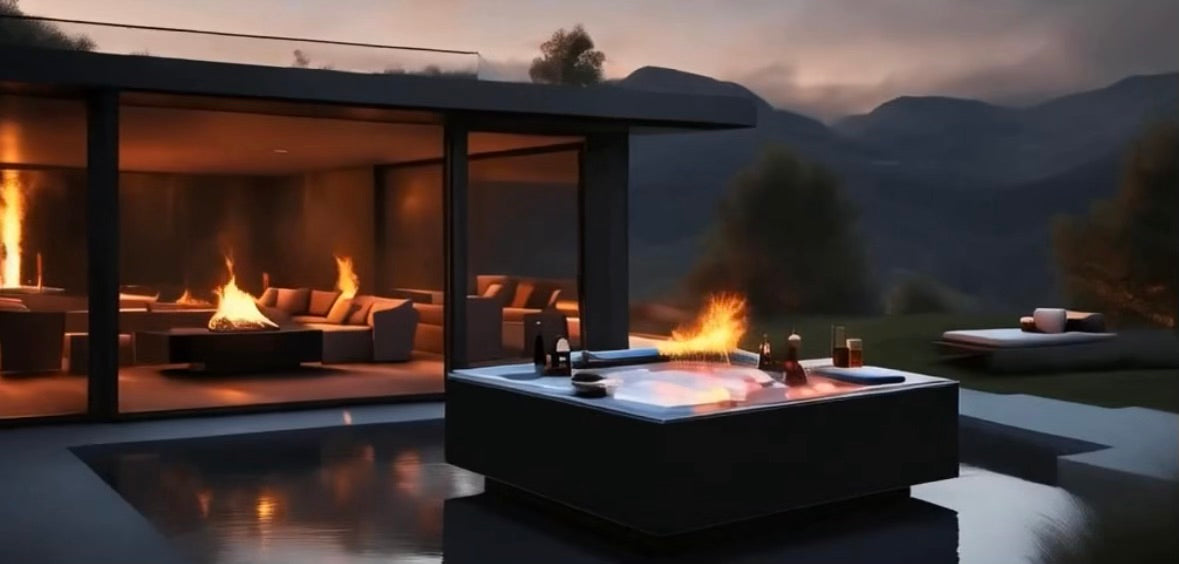With house prices not showing any signs of dropping soon, homeowners are looking for new ways to create flexibility in their living spaces. As previously mentioned, the increase in WFH patterns and hybrid working is creating a huge demand for people to be able to create a dedicated home office to work from. A place that is a short walk from the house, yet separate, meaning that it’s still possible to keep work and home life divided and enable a healthier work/life balance. Not only are more people working remotely and wanting a distinct workspace, but rather than the upheaval and expense of a move, homeowners are adding garden rooms to their properties to create additional living spaces.
A garden room is ideal for recreational activities: a home studio for a musician or artist, a home cinema, a home bar for entertaining family and friends, a hang-out space for teenagers to game in, a playroom for kids to keep toys and arts and crafts materials separated from the grownup living room and relaxation areas – or just a garden gym or garden yoga studio to prevent having to battle the crowds after work at the local leisure centre. The beauty that homeowners are discovering about garden rooms is their flexibility.
Benefits of garden rooms
There are a huge variety of reasons why a garden room is a benefit to install in your back garden. Firstly, they create additional living space – depending on what you need the extra room for, they can be incredibly versatile and are also easily transformed as the needs of the family alter. Easily customisable, they can create a convenient solution for those who require additional space but don’t want to undertake major renovations or extensions on their home. A garden room utilises the outdoor space of your garden and allows a relaxing retreat within the privacy of your garden.
The separation from the main house is ideal for those wanting to use it as a WFH office as it allows for greater concentration and the reduction of distractions. It also has the possibility of creating an overflow spare room when friends or family come to stay, yet within easy reach of the main house. Compared to a traditional home extension a garden room is a much more cost-effective option as well as being much more quickly installed. A garden room can have electricity and plumbing attached, creating a studio flat that can be self-contained and even rented out as a holiday let, to create some extra income – although this may require planning permission, as will running a business out of your garden room.
Multiple uses of garden rooms
A garden room has the potential to be used for almost anything you can envision for it, some of the most common uses include:
- Home office – separating off your work life from home, giving you the chance to close the door on work at the end of the day and walk back to the house to relax. Creating a productive and distraction-free workspace and saving money to rent an external office area.
- Home gym – saving battling the hordes after work in the local leisure centre, or create a calm, tranquil space for your yoga workout.
- Entertainment space – if you love to entertain family and friends, create a home bar and party room.
- Gaming or a cinema room – strong enough for hanging a large monitor on the walls, you can create an ideal space for your gaming or film-watching family and friends to hang out in.
- Playroom – families with children can use a garden room as a playroom for toys, games and other activities – keeping the house more organised and encouraging the kids to be outside in their own space and enjoy the outdoors more.
- Hobby or studio space – with natural light and a peaceful atmosphere, not to mention the acoustic possibilities, a garden room makes an excellent space for art or music.
- Relaxation or study – a separate space which can be a quiet haven for reading, studying or meditation – a garden room can be a tranquil space away from the bustle of the house.
- Greenhouse or gardening space – keen gardeners can use it as a sheltered space to tend to plants, start seedlings or rest and relax after a weeding session and enjoy the fruits of their labour.
- Guest accommodation – when families are expanding and likely to visit, a garden room can provide additional accommodation to put up visitors. If you add plumbing as well as electricity, you can even create a self-contained garden studio flat – although this use may well require planning permission, so be sure to check first.
- Other purposes – the possibilities of what a garden room can be used for are virtually limitless, they can be customised according to the individual needs and interests of the homeowner – and easily changed as the requirements alter.
Maximising Property Value with Garden Rooms
Are you considering adding a garden room to your property? Wondering how it can impact your home’s value? Look no further. In this blog, we explore the fascinating relationship between garden rooms and property value.
The Value of Garden Rooms
The addition of a high-quality garden room can significantly boost your home’s value. On average, it can contribute up to 8.4% more to your property’s overall worth. Of course, the exact increase depends on factors like location and the quality of installation.
Cost Considerations: You might wonder about the investment required for such an addition. The starting cost for an insulated garden office averages around £6,000 from Ogel World. But don’t let this initial figure discourage you. The key lies in understanding that the added floor space plays a crucial role in home valuation.
Calculating Potential Returns Size and Location Matter
While it’s tempting to go bigger, consider that larger structures don’t always translate to higher property value. In fact, removing valuable living space from your main house might have unintended consequences for your investment strategy.
Instead, think about how you can use the garden room to add something unique that potential buyers would find appealing. Flexibility is key here.
The Appeal of Garden Offices
In the era of remote work, garden offices have become a sought-after feature for property buyers. These dedicated office spaces not only provide practicality but also enhance the overall aesthetic appeal of a property.
Statistics: Searches for properties with garden offices have surged by 22% compared to pre-pandemic times, as reported by Legal & General. This trend is not just about adding extra space; it’s about meeting the evolving needs and preferences of buyers.
Comparing Garden Rooms to Loft Conversions
If you’re contemplating adding extra square footage to your home, it’s essential to compare your options. Garden rooms often come out on top due to their cost-effectiveness and convenience. Moving large items or accommodating substantial changes in a loft conversion can be challenging.
Moreover, loft conversions may disrupt your daily life with dust, noise and builders within your living space. While they can add value, they might not provide the same flexibility and functionality as garden rooms.
Design considerations and trends
There are a plethora of reasons why garden rooms are on the rise in popularity in the UK. These have a great deal to do with the design elements, as a garden room can incorporate natural light and, being situated out in the garden space, enable enjoyment of nature and the health benefits that this can bring in terms of well-being and positive mental health.
The design of the garden room can be incorporated into the landscaping and general aesthetic of the garden, a green roof can be added to encourage wildlife to still use the area and allow the garden room to blend better into the overall look and flow of the garden.
Garden rooms are generally prefabricated – or modular designs – and are, therefore, much quicker to install than an extension to the property or a conservatory. They are also able to be made from eco-friendly and sustainable materials – which is a huge consideration for many people today. When this is then paired with smart technology such as solar panels, you can have an energy-efficient garden room that is truly eco-friendly in every way. People these days are much more environmentally aware and want to know that they are doing their part to be eco-friendly and sustainable in the decisions that they make.



